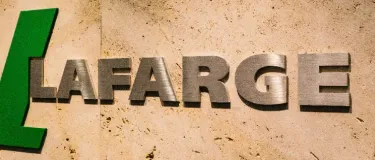Lafarge Africa Ranks Fourth in Forbes Africa Top 50 CSR Companies
…reinstates commitment to building for growth
Forbes Africa has ranked Lafarge Africa Plc, the fourth-best Corporate Social Responsibility (CSR) and Sustainability Company in Nigeria for the year 2019. The Forbes Africa Awards ranking is a culmination of impact assessments of over 910 organisations operating in Nigeria over the past thirteen years.
The criteria for the selection include the Company’s participation and its recognition in national and international investments in CSR and Sustainability projects in the period under review. The assessment also focused on the work of the organisation in line with the United Nations Sustainable Development Goals, the number of stakeholders impacted by the programmes.
While commenting on the award, the Communications, Public Affairs and Sustainable Development Director for Lafarge Africa, Folashade Ambrose-Medebem said the Company is excited and has been encouraged to do more.
“Lafarge has become a global leader in Corporate Social Responsibility (CSR) and Sustainability and we are happy that our impacts are being recognized. Our CSR and Sustainability programmes is one major part of our business. Our empowerment programme cuts across four cardinal areas of social intervention which include education, health, infrastructure development and other forms of support,” Ambrose-Medebem said.
One of Lafarge Africa’s flagship CSR program is the National Literacy Competition, which is in its sixth edition. “We introduced the Lafarge Africa National Literacy Competition (LANLC) in 2014 to engage public primary school pupils across the country who display and improve their literacy skills by competing in literacy-related activities. Since its inception, the competition has impacted more than 700,000 pupils in 1,665 schools across 544 local government areas (LGAs),” she informed.
Recently, the Company conducted its annual corporate social responsibility for its host communities in Ogun, Cross Rivers and Gombe states. Hundreds of residents in the community have been empowered since the programme started. The company has impacted the host communities by creating socio-economic opportunities which has raised over 100 micro-entrepreneurs through various skill acquisition and empowerment interventions. “To enhance more collaboration and public services across the communities, we have contributed 4,200 business hours through our ‘Friends and the community’ employee volunteering initiative with over 380 strong volunteers” Ambrose-Medebem said.
She further stated that the company understands the crux of maintaining a source of livelihood, thus, through its Agric ecology programme, the company provided 400 hectares of farmland in Gombe State with 700 farmers as direct beneficiaries.
She reaffirmed the company’s commitment to agriculture which remains a feasible source of livelihood to Nigerians. According to her, through Lafarge’s quarry rehabilitation programme, 26,000 tree seedlings were planted in quarries around its host communities to promote the environment.
On this and other sustainability programmes, Ambrose-Medebem said, “we emphasise four critical areas which are climate and energy, circular economy, environment and the community. For instance, our 2018 reports showed that our net CO2 emissions per tonne of cementitious material decreased to 542Kg CO2 per tonne. That was a 5.7 reduction from 2017. On circular economy, we utilized 120,526 of waste-derived resources. Our freshwater withdrawal per ton of product was 248 litre per ton for cement and 189 L/M3 for ready mix. Across different communities, our social investment projects and initiatives directly impacted over 500,000 beneficiaries within and beyond our host communities. With these achievements, we are gradually achieving our goal which is to build for growth”.
The Company believes that organisations can only fully achieve their business goals if they contribute to meeting the needs of the society in which they operate.




